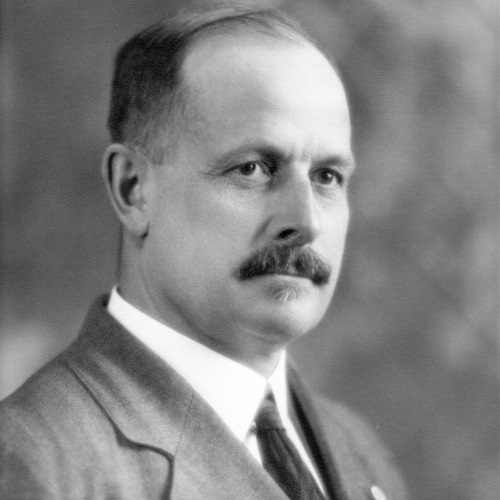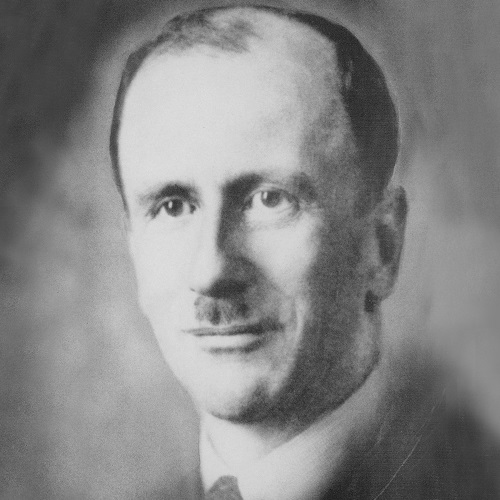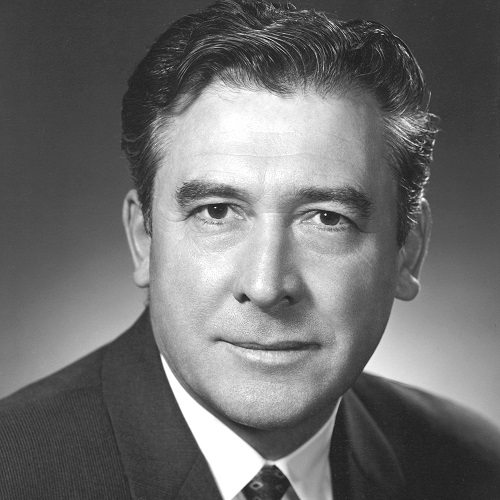100 years of coming together
Alphonse Desjardins’ founding of the first caisse Populaire (credit union) in 1900 meant that Quebecers could now take care of their own business—but still only with the approval of the parish priest. Hundreds of cooperatives of different kinds—for buying, selling, manufacturing, and processing—sprang up in the following years, and the government soon passed a law to govern these new groups. The game had changed: joining forces gave people a way to achieve solutions to their problems. Farming had many such problems in those days, with farmers experiencing great difficulty in accessing markets to sell their products.
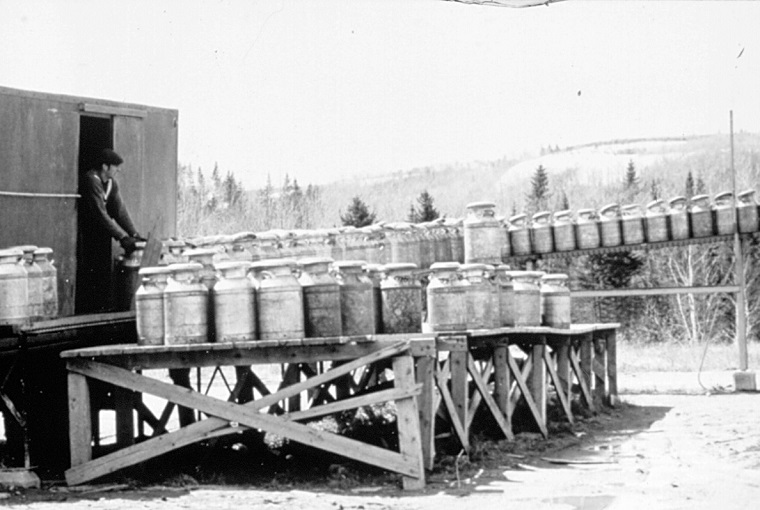
Agricultural groups, associations, and unions in the rest of Canada did not appear interested in what was happening in Quebec. This led two agronomists, Joseph-Noé Ponton and Firmin Létourneau, to urge farmers to come to a meeting in Quebec City to discuss the market situation and look for solutions. On October 1 and 2, 1924, nearly 2,500 farmers from all over the province gathered. It was far more than the organizers had expected, and a larger venue had to be found at the last minute to accommodate the massive crowd. On October 2, after two days of fervent discussions at the Voltigeurs de Québec Armoury, the Union catholique des cultivateurs was created. Just a week later, local circles began organizing to recruit members.

Since 1924, the Union catholique des cultivateurs (which became the Union des producteurs agricoles in 1972), has been a key player in supporting and defending the development of Quebec agriculture, no matter what kind, no matter where in the province. The Union has developed innovative tools to ensure that all Quebec farmers can earn an adequate income that is representative of the market and takes into account what is happening in other places.
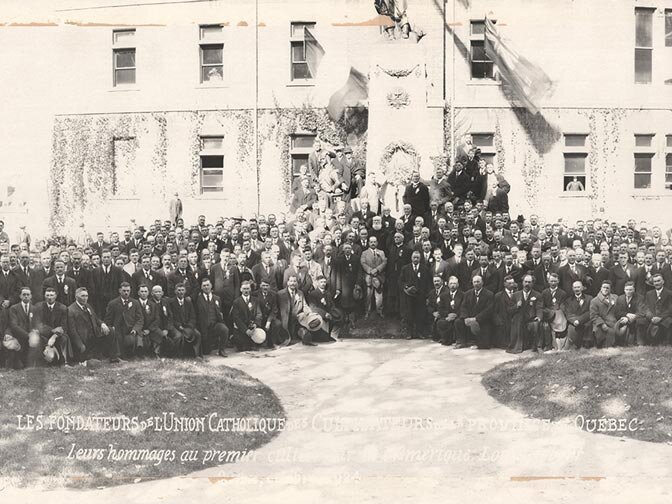
The Union has fought for laws and regulations, legislative changes, services like rural electrification, and management tools like crop insurance and market stabilization. It has always acted on behalf of and in the interest of its members, in keeping with a democratic structure that ensures the views of all members can be heard. As of 2023, the UPA comprised 88 local unions, 144 specialized groups (regional and provincial) and 12 regional federations, all under the umbrella of a broad confederation.
Over 100 years of UPA history, Quebec’s approach to organizing its agriculture sector has become a benchmark in Canada and in many other countries. Through UPA Développement international (UPA DI), the UPA also reaches out to our agrarian counterparts around the world. In looking back on its history, the UPA is extremely proud that the demands, struggles, and initiatives it has fought for over the years have helped advance Quebec agriculture and made the province a better place.
Some examples
Without ever-rigorous protection from the UPA, vastly more farmland would have been lost due to property speculation. What would have been the impact of this loss on next-generation farmers, small-scale operations in emerging production sectors, and peri-urban agriculture? And then there’s the question of the free-trade proposals, resolutely opposed by the UPA, which might have made Quebec dairy farms a thing of the past. The long list of achievements demonstrates the power that an organization like the UPA can have.
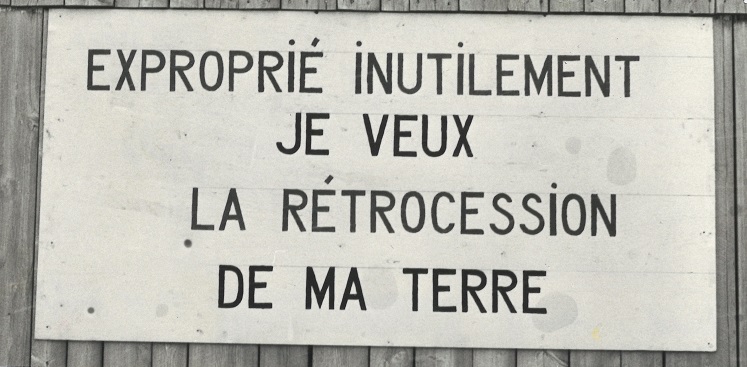
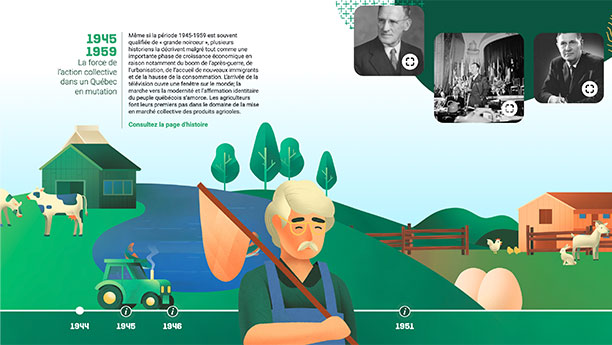
100 years of feeding Quebec
The UPA’s 100th anniversary is a unique opportunity to learn about the landmark events in the history of Quebec agriculture that have in turn shaped the province’s history. For instance: while the first farmers’ movements began in 1789, it was over 200 years later, in October 1924, that nearly 2,500 farmers from all over the province gathered in Quebec City and founded the Union catholique des cultivateurs. Dive into our timeline to learn more!
Explore the timeline This link will open in a new window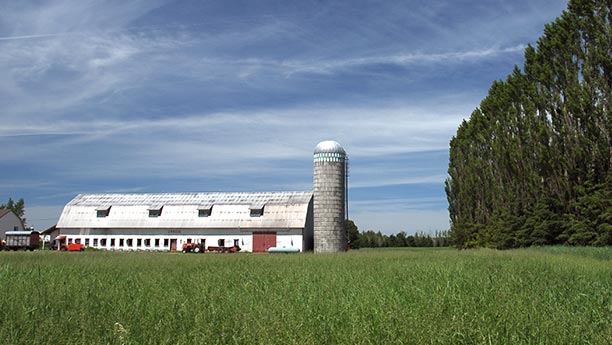
The farming crisis : Put us at the heart of the solution!
Looking to the future, our food autonomy is a serious concern. An unprecedented confluence of social, environmental, climatic, and economic factors that have put Quebec agriculture in an extremely vulnerable position.
Find out more
